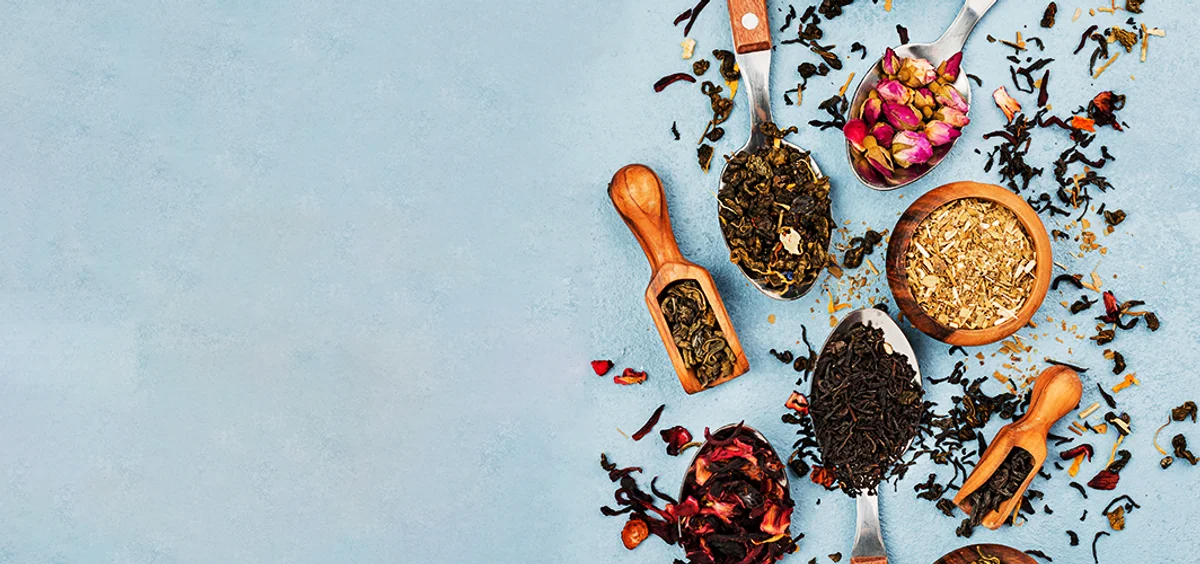- Home
- Blog
- Personal Care
Effective Herbs To Lower Your Blood Sugar Levels
Personal Care
Effective Herbs To Lower Your Blood Sugar Levels
By - 10 May 2022, Updated on -18 October 2022
Share this article
0
7 likes

If you are one of the millions of people who suffer from high blood sugar, you know how important it is to keep your sugar levels under control. While there are many prescription medications available to help manage blood sugar, many people prefer to use natural methods instead. In this blog post, we will discuss 11 herbs that have been shown to be effective in lowering blood sugar levels.
Herbs are a great way to naturally lower blood sugar levels. Many of these herbs have been used for centuries in traditional medicine systems to treat diabetes and other health conditions. Let's take a look at some of the most effective herbs for lowering blood sugar levels.
Gymnema sylvestre
Gymnema sylvestre is an herb that has been used in Ayurvedic medicine for centuries. It is known as "gurmar" or "sugar destroyer" in Hindi, and is believed to help the body break down sugars and carbohydrates. Gymnema sylvestre has also been shown to improve insulin sensitivity and reduce cravings for sweets.
Fenugreek (Methi)
Fenugreek (Methi) is another popular herb used to lower blood sugar levels. This herb is native to the Mediterranean region and has been used in traditional medicine for many years. Fenugreek seeds contain a compound called galactomannan, which has been shown to slow the absorption of sugars into the blood. Fenugreek is also thought to improve insulin sensitivity and help lower cholesterol levels.
Cinnamon
Cinnamon is a spice that has long been used to help regulate blood sugar levels. Cinnamon helps to increase insulin sensitivity and reduce the amount of glucose that is absorbed into the bloodstream after eating. A study published in the Journal of Diabetes Science and Technology found that cinnamon extract was able to significantly lower blood sugar levels in people with type II diabetes.
Turmeric (Haldi)
Turmeric (Haldi) is another spice with blood sugar lowering properties. This yellow-colored spice is commonly used in Indian cuisine. Turmeric contains a compound called curcumin, which has been shown to improve insulin sensitivity and decrease blood sugar levels. A study published in the Journal of Clinical Endocrinology & Metabolism found that turmeric was able to lower blood sugar levels by up to 29% in people with type II diabetes.
Ginger
Ginger is another herb with a long history of use in traditional medicine. Ginger is thought to help increase insulin sensitivity and reduce blood sugar levels. A study published in the International Journal of Biological Sciences found that ginger was able to significantly lower blood sugar levels in rats with type II diabetes.
Cayenne
Cayenne is effective in lowering blood sugar levels, because it contains capsaicin which stimulates the vagus nerve that regulates insulin production by the pancreas. Capsaicin also helps reduce inflammation and lower cholesterol and triglyceride levels.
Bitter gourd (Karela)
Bitter gourd (Karela) is a vegetable that is often used to help lower blood sugar levels. It contains a compound called charantin, which helps the body to better use insulin. This can help to regulate blood sugar levels and prevent spikes in blood sugar after eating. Additionally, bitter gourd also contains antioxidants and vitamins that can improve one’s overall health.
Conclusion
These are just a few of the many herbs and spices that have been shown to be effective at lowering blood sugar levels. Herbs can be a great addition to any diet, and they may even help to prevent the development of type II diabetes. However, it's important to consult with your doctor before taking any herbal supplements, as they may interact with other medications you are taking.
Services
Personal Care
Leave Comment
Services
Recommended for you

Personal Care
10 Simple Ways to Deal with Stress and Destress Yourself
Are you feeling stressed? If so, you are not alone! Stress is a common problem that many people deal with on a daily basis. In this blog post, we will discuss 10 simple ways to deal with stress and destress yourself.

Personal Care
How to Reduce Dark Circles Under the Eyes?
Dark circles are caused by stress, lack of sleep, or fatigue. Home remedies like cucumber slices, cold compresses, and cosmetic products can help reduce their appearance.

Personal Care
9 Simple ways to relieve acidity
Acidity can be a painful and unpleasant experience; it doesn’t have to last forever. In this blog, we will discuss 9 practical and natural way to ease acidic reflux. #ApolloPharmacy #Acidity #RelieveAcidity
Subscribe
Sign up for our free Health Library Daily Newsletter
Get doctor-approved health tips, news, and more.

